Helpful Articles
When it comes to pelvic floor issues, the internet is full of misleading information. The articles on this website provide up to date information and best evidence based practice. You can trust the material because it is backed by current research.

Vulvar Skin Care
Health
Vulvar Skin Care Advice There are many products we apply to or around the vulva that can irritate the skin and nerves, contributing to irritation and pain. Below are some helpful tips to keep your vul...
Read Full Article
Urinary Incontinence
IncontinencePostpartum
What is urinary incontinence? When women talk about peeing their pants when trying to make it to the bathroom or when exercising, this is urinary incontinence. Another term I’ve seen used frequently a...
Read Full Article
Postpartum Fitness
Postpartum
A WORD OF CAUTION AND SOME ADVICE As moms we discourage our daughters from comparing their bodies to those of celebrities and models in magazines or on the internet, so why don’t we hold ourselves to...
Read Full Article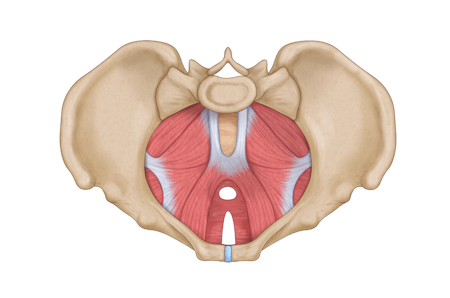
What is the Pelvic Floor?
ProlapseIncontinencePainHealthPregnancyPostpartum
The pelvic floor is a group of muscles that attach around the bones of the pelvis; from the pubic bone to the tailbone, and between the hip bones and the sacrum. They form a basket shape that carry an...
Read Full Article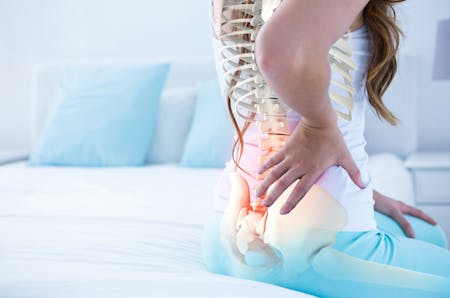
Back Pain
PainPostpartumIncontinence
Low back pain represents the number one reason for visiting a primary healthcare provider. Over 80 percent of the population will experience an episode of low back pain at some time during their life....
Read Full Article
5 Tips for Healing Postpartum
Postpartum
Deep breathing whenever you can, wherever you can ex: -While breastfeeding -Lying on your back on the floor with knees bent while baby does tummy time next to you - Do 5-10 breaths before...
Read Full Article
Prenatal Reasons to See a Physiotherapist
Pregnancy
If you experience any of the following symptoms during pregnancy, you would benefit from pelvic floor physiotherapy: Incontinence Pain with sex Pelvic Girdle Pain (PGP) Vulva varicosities Tailbon...
Read Full Article
Postpartum Reasons to See a Physiotherapist
Postpartum
In a 2005 joint policy statement, the Society of Obstetricians & Gynaecologists of Canada reported: Pelvic floor muscle training with a physiotherapist is recommended to prevent urinary incontinence ...
Read Full Article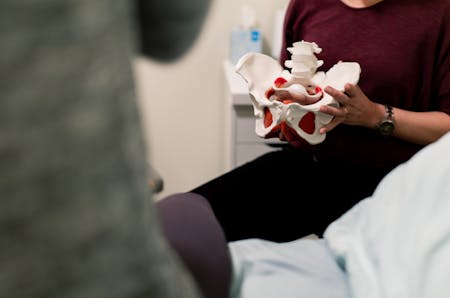
What to Expect
Health
How should I prepare for my appointment? You do not need to wear any special clothing. Please complete the assessment forms the clinic sends you prior to your appointment. How long does the assessm...
Read Full Article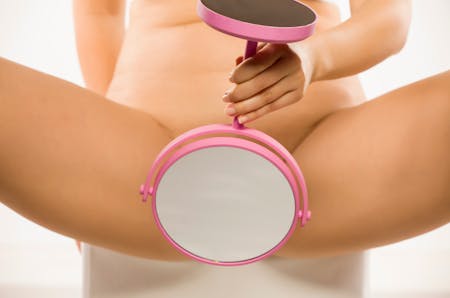
Prolapse
ProlapseHealth
Pelvic organ prolapse is very common and affects 50% of women. It does not always get worse and in most cases with pelvic floor physiotherapy, can even get better. Pelvic Floor “A boat in the water”...
Read Full Article
Endometriosis
PainEndometriosis
What is endometriosis? Endometriosis occurs when tissue, similar to the kind that lines the uterus (endometrium), is found in places outside of the uterus where it should not be. For each person with ...
Read Full Article
Diastasis Rectus Abdominus
PostpartumPregnancy
Diastasis Rectus Abdominis (DRA) also termed diastasis recti is becoming a hot topic among postpartum women and social media sources. However, with the discussions have come a lot of misconceptions an...
Read Full Article
Painful Sex
PainPregnancyPostpartum
Painful sex, medically defined as dyspareunia, can be experienced during penetration, thrusting, after sex, or all of the above. This pain is experienced differently by each individual. It can feel li...
Read Full Article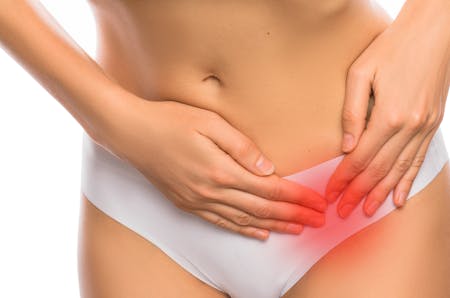
Trigger Points in the Anterior Levator Ani Muscles
PainPostpartumPregnancy
Bladder infection symptoms, but the urinalysis comes back reporting there is no infection? Constant need to pee? Pain around the ovaries? Lower abdominal cramping? Pain with sex, especially with deep...
Read Full Article
Urinary Incontinence Pt. 2
IncontinencePregnancy
DROP OR PUDDLE, FIX YOUR BLADDER TROUBLE Take the Quiz! An internal vaginal exam is not needed in order to be taught how to properly perform a kegel. FALSE. Health care providers should never prescr...
Read Full Article
Pregnancy Pain
PregnancyPain
A study by Pierce (2012) investigated back and pelvic pain experienced by women during pregnancy. The study suggests that although 71% of pregnant women reported pain to their healthcare professionals...
Read Full Article